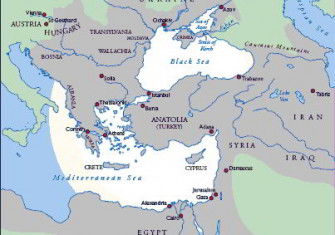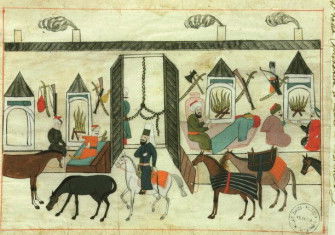Birth of an Ottoman Traveller
Evliya Çelebi was born on 25 March 1611.

Evliya Çelebi was born in Istanbul on 25 March 1611. He is best known in the Anglophone world through the 19th-century translations of Joseph von Hammer-Purgstall and, more recently, Robert Dankoff. His ten-volume Seyahatname is perhaps the longest piece of travel writing in world literature; Dankoff says the first time he read it in its entirety it took three years.
To the historian, the book’s chorographic elements are the most important; but to the casual reader it is the personal recollections that catch the eye, even – perhaps particularly – where they are clearly less than factual. Çelebi writes that in ten days between 12 and 22 October 1663 he accompanied 40,000 Tatars in a raiding party from Hungary which reached as far as Amsterdam. He writes of being trapped in a fortress under siege by Cossacks in 1657. Çelebi builds rockets to message nearby troops; the siege is broken by a midnight sortie of several hundred sheep and goats with lighted wicks on their horns. (This one comes with a note confirming its fantasy.)
The Seyahatname opens with a dream and there is something dreamlike – magical, if you like – about its realism. Çelebi died in Cairo in the 1680s, before the Turks lost Buda and Belgrade and the Ottoman imperial dream was forced into retreat.






